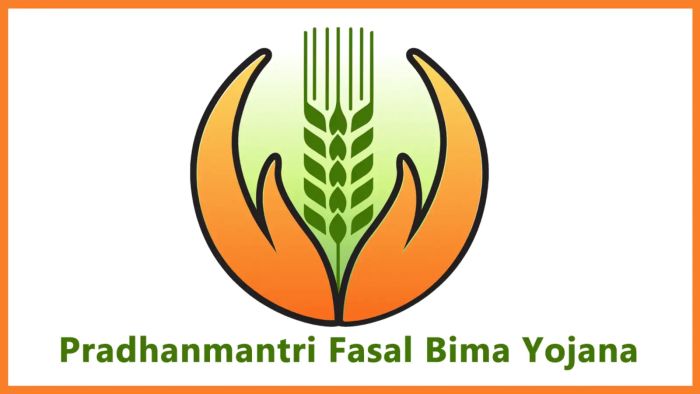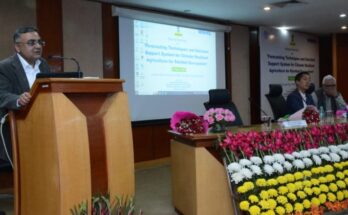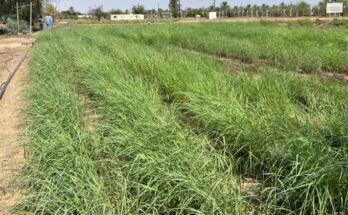Union Ministry of Agriculture and Farmers Welfare is open to taking ‘pro-farmer changes’ in the Centre’s flagship crop insurance scheme, Pradhan Mantri Fasal Bima Yojana (PMFBY) in response to the recent climate crisis and rapid technological advances.
Highlighting the development, Secretary, Agriculture and Farmers Welfare, Manoj Ahuja today said, since farming is exposed directly to such climatic catastrophes, it is important and critical to protect the vulnerable farming community of the country from the vagaries of nature. As a result, demand for crop insurance is likely to increase and therefore we need much more emphasis on crop and other forms of rural and agricultural insurance products to provide sufficient insurance protection to the farmers in India.
Ahuja pointed out that after the introduction of PMFBY in 2016, the scheme brought in comprehensive coverage of all the crops and perils, from the pre-sowing to post-harvest period which was not included in previous schemes of the National Agricultural Insurance Scheme (NAIS) and modified NAIS. He said, several new fundamental features were also added during its revision in 2018, such as increasing the crop loss intimation period for farmers from 48 hours to 72 hours, keeping in mind that damage signatures disappear or are lost in case of localised calamities after 72 hours. Similarly, post its revamp in 2020, the scheme added voluntary enrolment and inclusion of add-on cover for wildlife attacks, to make the scheme, even more, farmer-friendly.
You may also like to read: Dr. Abhilaksh Likhi, AS Agriculture visits Precision Farming Development Centre, Coimbatore
Ahuja said, PMFBY has been facilitating the adaptation of crop insurance, while addressing several challenges on the way and pointed out that the major changes made in the revamped scheme were giving more flexibility to the states for coverage of risks under the scheme and making the scheme voluntary for all farmers to meet their the long-standing demand.
Ahuja said, in the era of rapid innovations; digitisation and technology are playing a significant role in scaling up the reach and operations of PMFBY with precision agriculture. Union of agritech and rural insurance can be the magic formula for financial inclusion, enabling trust in the scheme. Recently introduced Weather Information and Network Data Systems (WINDS), Yield Estimation System based on Technology (YES-Tech), and Collection of Real-Time Observations and Photographs of Crops (CROPIC) are some of the key steps taken under the scheme to bring in more efficiency and transparency.
It may be recalled that in 2022, several reports of excess rainfall came from Maharashtra, Haryana and Punjab while Madhya Pradesh, Uttar Pradesh, Bihar and Jharkhand reported deficit rainfall, eventually damaging crops like paddy, pulses and oilseeds. Of late, instances of such uncertainties – thunderstorms, cyclones, droughts, heat waves, lightening, floods and landslides have also increased, occurring almost every day in India in the first 9 months of 2022, as reported in several science and environment dailies and journals, the top bureaucrat in the agriculture ministry said.
You may also like to read: Centre and states’ adoption of drone technology brings good news for Indian agriculture
He also pointed out that World Economic Forum’s Global Risk Report 2022 categorise Extreme Weather Risk as 2nd largest risk over the next 10 years period and such sudden shifts in weather patterns are capable of adversely impacting our country, where the responsibility to feed the world’s 2nd highest population lies solely on the shoulders of the agriculture community. It, therefore, becomes imminent to provide a safety net to the farmers to protect their financial position and encourage them to continue farming and ensure food security for not only the country but for the world as well.
PMFBY is currently the largest crop insurance scheme in the world in terms of farmer enrolments, averaging 5.5 crore applications every year and the third largest in terms of premium received. The scheme promises minimal financial burden on the farmer, with farmers paying only 1.5 per cent and 2 per cent of the total premium for Rabi and Kharif seasons, respectively, with Centre and state governments bearing most of the premium. The increase in acceptability of the scheme amongst the farmer can be ascertained from the fact that share of non-loanee, marginalised and small farmers increased by 282 per cent since the inception of the scheme in 2016.





